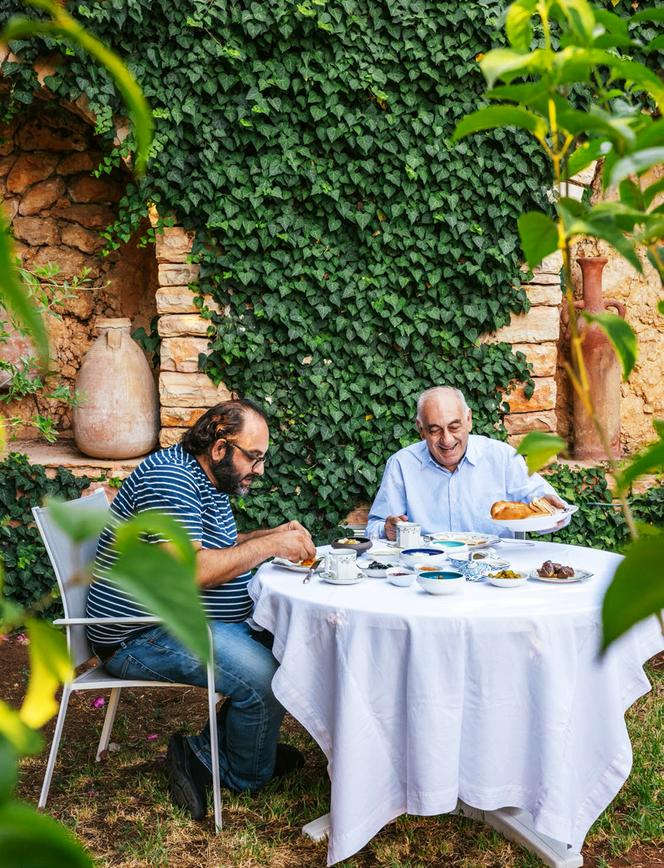


"I yearn for my mother's bread, my mother's coffee," wrote Palestinian poet Mahmoud Darwish in his poem "To My Mother." Food plays a central role in Palestinian literature and stories. Visual art, too, abounds with references to nourishing trees – fig, olive, lemon – such as the paintings of Sliman Mansour or the works of contemporary artist Noel Maghathe.
This December marks the end of the olive harvest season in the West Bank, described as "the most dangerous ever" by experts commissioned by the United Nations because of the "intimidation and violence" suffered by farmers at the hands of Israeli settlers.
In these troubled times, French-Palestinian chef Fadi Kattan has released Bethlehem: A Celebration of Palestinian Food, published in English by Hardie Grant Books. In it, Kattan shares recipes and portraits of artisans and farmers who keep the local traditions alive. In an introduction to the French edition, publisher Solar warns that the war between Israel and Hamas may have altered the places mentioned by the author in this book written in 2023: "The addresses and stalls mentioned may no longer be in business."
Trained in Paris, Kattan owns three restaurants: Fawda in his hometown of Bethlehem, Akub in London and Louf in Toronto. On his Instagram account, which has over 68,000 followers, he shares his recipes and comments on current events in Gaza, because, for him, cuisine plays a leading role in the Palestinians' political demands. "In my kitchens in London or Toronto, before training my teams, I ask them to watch videos or movies on Palestinian cuisine," he says. "I want them to understand that the three drops of olive oil we use are precious not because of their price, but because an entire village has worked to grow them, despite threats from settlers."
For him, "Palestinian cuisine is the beauty of a culinary heritage alongside the horror of everyday life." Others like him are showcasing Palestinian culture by representing its cuisine on social media. Such is the case of Renad Attallah, a 10-year-old Gazan, with her Instagram account followed by 900,000 subscribers. She shares her recipes made from food parcels, such as knafeh, a cheese-based dessert, or maqlouba, a dish based on rice, fried vegetables and meat.
"It's about showing that, despite war, there's still a celebration of life and living," says Tunisian geographer and filmmaker Habib Ayeb. "All peoples have used food as a mark of their identity. It's seen as a direct link with the land, and in the Palestinian case, this makes all the more sense with the displacement of populations since 1948 and the colonization of the territories."
You have 34.27% of this article left to read. The rest is for subscribers only.
